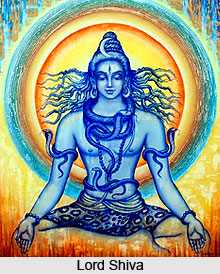 The traditional low-caste people of Maharashtra and those of rural origin were mainly the devotees of Siva and they built the temples of Rudra-Siva, Khandoba, Bhairava and a number of local goddesses. These ancient were not eradicated but were replaced by the preaching of the bhakti cult centred on the god Vitthala of Pandharpur that began around the end of the fourteenth century.
The traditional low-caste people of Maharashtra and those of rural origin were mainly the devotees of Siva and they built the temples of Rudra-Siva, Khandoba, Bhairava and a number of local goddesses. These ancient were not eradicated but were replaced by the preaching of the bhakti cult centred on the god Vitthala of Pandharpur that began around the end of the fourteenth century.
Namdev composed a collection of writings by several different Maharashtrian saints and named it the Tirthavaligatha. It was designed to propagate Vaisnava bhakti centred on the cult of Vitthala. It was said to have been brought to Pandharpur by the merits of a mysterious holy man named Pundallk.
But Siva continued to remain as the supreme deity. And the Pundalik temple remains a Saiva temple till today in the hands of low-caste Koli fishermen. The original Saiva character of the famous Vitthala icon itself is suggested by the Shiva linga as its headgear.
According to S G Tulpulc, `the god Vitthala of Pandharpur is, according to Chakradhara, a deified hero-stone. It became jagrata (means `awake` i.e. `alive`) and people started worshipping it. The character of it was changed from a Saivite hero-cult to the Vaisnava cult of the Varakaris. Again, Vitthala is said to be a young boy, unlike Krishna is rather innocent.



















